UN Security Council President Barbara Woodward has said that the pace of the Council reform process has been “very frustrating” and that her country backs moving on to text-based negotiations.
Woodward, who is Britain's permanent representative and assumed the rotating presidency for this month, said on Monday, “I recognise that it has been a very frustrating process."
“We too thought it would be useful actually to move to text-based negotiations, but I'm afraid we didn't," she said.
“There wasn't enough support for that to make immediate progress."
The reform process which is known as Intergovernmental Negotiations (IGN) ended its meetings for the current session with little progress and for the 25th time rolled over the negotiations to the next session.
One of the roadblocks to advancing the reforms is the failure to adopt a text on which to base the negotiations because of the opposition of a few countries as a way of preventing it from going ahead.
Woodward said that she had been in contact with IGN co-facilitators who led the reform process, Permanent Representatives Tareq AlBanai of Kuwait and Alexander Marschik of Austria, and “I know that they've tried very hard indeed but there is such a wide range of views that it seems very difficult indeed, to make progress".
"So I recognise the frustrations," she added.
Woodward reiterated Britain’s support for making India, Brazil, Germany and Japan permanent members of the Council to reflect contemporary realities.
Asked about Britain’s choice of the four countries, she said that it had to do with geographic balance and recognising their rising influence.
“Introducing India or Brazil would bring a wider geographical representation into the council, but (would serve) also to bring in countries that have more influence than they had when the original Security Council was put together in 1945, for obvious reasons."
“So there's a sort of combination of recognising the world as it is today, alongside geographical balance," she added.
While India was a founding member of the UN in 1945, it was still a British colony and was not considered a candidate for a permanent seat.
Britain also supports two permanent memberships for African nations who would themselves determine the countries for the seats and one of them could be an Arab- African country, Woodward said.
She referred to a foreign policy speech by Britain’s Foreign Secretary James Cleverly announcing his country’s “ambition to drive forward reform of the multilateral system”.
“And our presidency in July marks the first step in that process," she added.
She said two items from the priorities he set out that Britain will take up at the UN are Council reforms because “it's high time the council entered the 2020s," and technology.
“On technology during our presidency, we'll be bringing artificial intelligence (AI) to the Security Council for the very first time with our signature event this month," she added.
“Humanity stands on the precipice of this gigantic, gigantic, technological leap forward” and “we want to encourage a multilateral approach to managing both the huge opportunities and the risks that artificial intelligence holds for all of us," she said.
The Council meeting on AI on July 18 under the agenda of maintenance of international peace and security will be a precursor to a summit that Britain's Prime Minister Rishi Sunak is convening to seek agreements on safety measures to evaluate and monitor AI's most significant risks, according to the British government.
It noted that leading experts have “warned about the potential for AI to endanger humanity in similar ways to pandemics or nuclear weapons”.

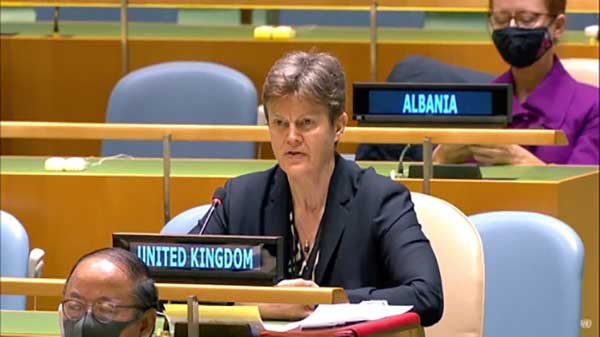
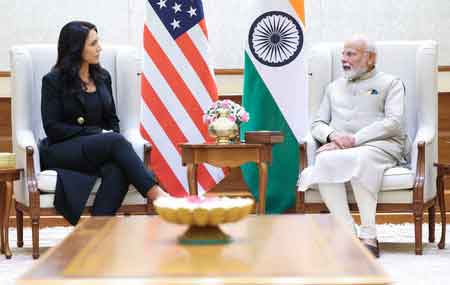
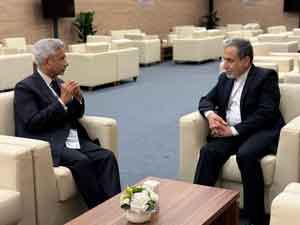
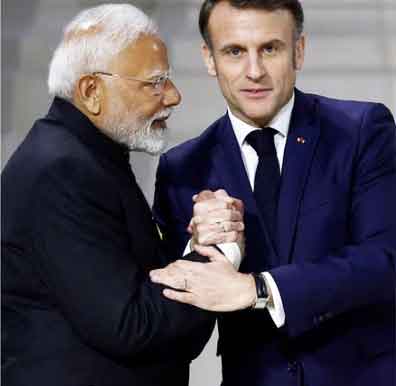
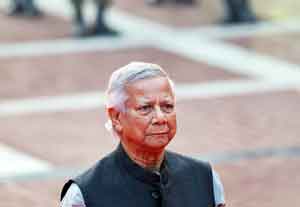


Tripura CM Saha holds key meeting with BJP, IPFT and TMP leaders
Tripura Chief Minister Manik Saha on Friday held an "important" meeting between the leaders of ruling BJP and its two allies – Tipra Motha Party (TMP) and Indigenous People's Front of Tripura (IPFT) and discussed various political and developmental issue, sources said.
HM Amit Shah's meeting sends a clear message: Not a drop of water to Pakistan
A high-level meeting was held on Friday at the residence of Union Home Minister Amit Shah regarding the suspension of the Indus Waters Treaty. The 45-minute meeting between the Home Minister and Union Jal Shakti Minister C.R. Patil focused on exploring ways to halt the flow of water to Pakistan.
Tripura: TMP chief urges Centre to adopt 'stronger policy' against B'desh
Ruling BJP’s ally Tipra Motha Party (TMP) founder-chief Pradyot Bikram Manikya Debbarma on Friday urged the Central government to adopt a stronger policy stance towards Bangladesh, accusing the neighbouring country of encouraging fundamentalist forces targeting Hindu minorities.
Pahalgam attack: More countries express solidarity with India, offer support in fight against terrorism
Ambassadors of Israel, Egypt, Argentina, and Nepal met External Affairs Minister (EAM) S. Jaishankar in New Delhi on Friday, expressing solidarity with India in its fight against terrorism following the heinous terror attack in Pahalgam.
Tripura CM directs SPs and DMs to remain vigilant about Pakistani nationals
Tripura Chief Minister Manik Saha on Friday directed the Superintendents of Police (SPs) of all eight districts to regularly share necessary inputs with the Chief Minister’s Secretariat regarding the presence of any Pakistani nationals in the state, officials said.
US supports India's 'hunt' for those behind 'horrific Islamist terrorist attack' in Pahalgam, says Gabbard
Tulsi Gabbard, Director of National Intelligence (DNI), on Friday said that the United States supports India's "hunt" for the perpetrators of the "horrific Islamist terrorist attack" in Pahalgam that took place earlier this week.
Tehran stands ready to 'forge greater understanding' between India and Pakistan: Iran FM Araghchi
Citing its good relations with both India and Pakistan, Iran on Friday said that it stands ready to "forge greater understanding" between New Delhi and Islamabad following the Pahalgam terror attack, earlier this week.
PM Modi's action will act as deterrent against any fresh attempts to harm India: Tripura CM
Tripura Chief Minister Manik Saha on Friday denounced the Pahalgam terror attack, asserting his staunch belief that Prime Minister Narendra Modi's decisive action will act as a strong deterrent against any future attempts by terrorists to harm India.